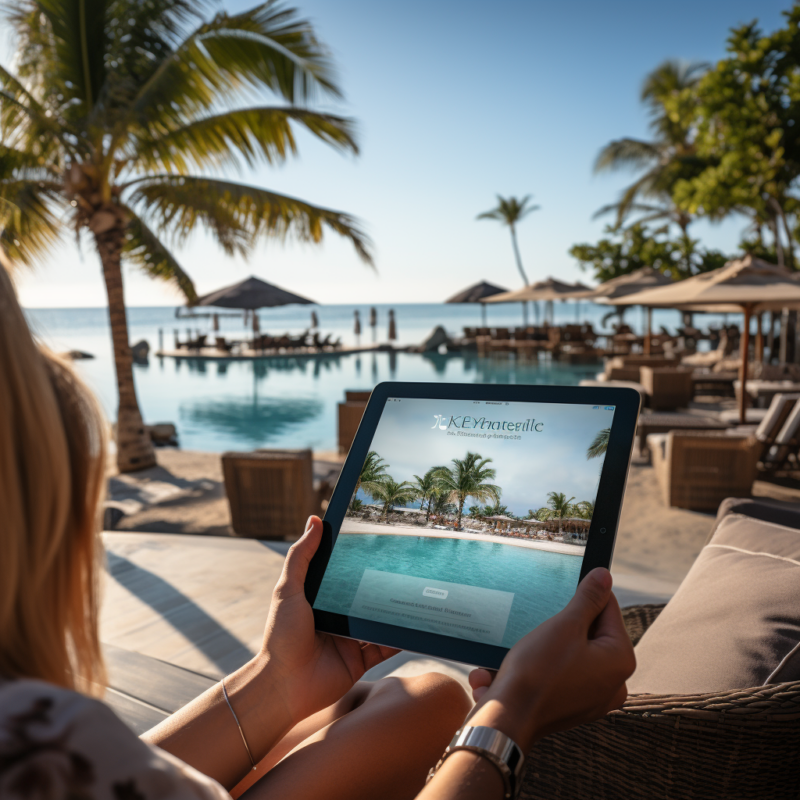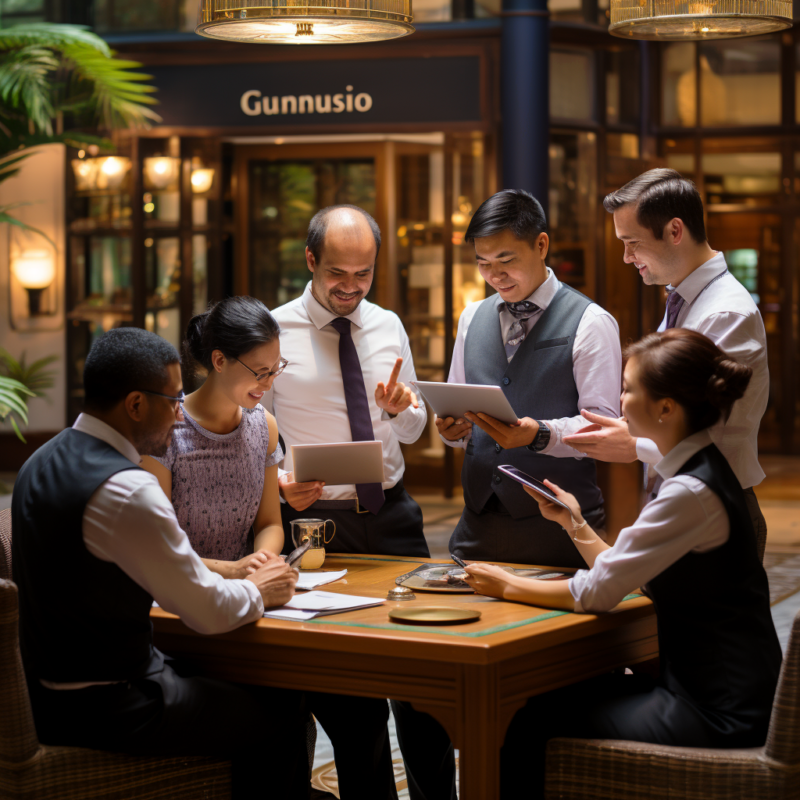
In the vibrant world of hospitality, effective communication and exceptional guest experiences are paramount. In this age of global travel and diverse clientele, language translation has become vital for success. This article delves into the pivotal role of language translation in the hospitality sector, highlighting nine compelling reasons, each supported by real-world examples that underscore the significance of bridging linguistic barriers.

1. Seamless Guest Experiences
Language translation is the cornerstone of crafting unforgettable guest experiences. Imagine a luxury hotel nestled in a bustling city. A family from China checks in, and the hotel’s staff greets them in Mandarin. By seamlessly communicating in their native language, the hotel establishes an immediate connection, ensuring the family feels at home from arrival.

2. Breaking Down Language Barriers
Consider a popular tourist destination where a backpacker from Germany seeks directions from a local café. The café’s staff, adept in various languages, assists the travelers in German, helping them navigate the city. By transcending language barriers, the café becomes a reliable source of information and a memorable stop on the traveler’s journey.

3. Capturing Global Markets
A picturesque resort situated on an exotic island aspires to attract travelers from around the world. The resort’s multilingual website makes its offerings accessible to international guests. A couple from Russia discovers the resort online, charmed by the detailed information available in their language. This leads to a reservation, showcasing the tangible impact of language translation on market expansion.

4. Driving Revenue Growth
Picture a cosmopolitan restaurant renowned for its culinary innovations. By translating its menu into languages such as Spanish and Japanese, the restaurant entices foreign patrons to explore its gastronomic delights. A group of Spanish tourists, drawn by the translated descriptions, opts for the chef’s tasting menu, contributing to increased revenue and the restaurant’s reputation.

5. Cultural Sensitivity and Inclusivity
A boutique inn nestled in a culturally rich region values diversity and inclusivity. A couple from India arrives, seeking a holistic experience. The inn’s staff, well-versed in various cultures, understands their needs and preferences. By offering vegetarian Indian cuisine options and translating wellness activities, the inn ensures the couple feels understood and respected.

6. Building a Positive Online Reputation
In an era of digital influence, online reviews hold immense power. A charming bed and breakfast welcomes guests from all corners of the globe. A family from Japan is so enamored by their stay that they leave a glowing review in Japanese, praising the accommodations and personalized service. This review, enriched by accurate language translation, attracts more Japanese travelers to the establishment.

7. Strategic Marketing Initiatives
A chain of upscale cafes plans to expand its reach. The chain taps into international markets by translating its promotional content into languages like French and Chinese. A food critic from France discovers
the café’s social media posts and decides to visit, enticed by the translated descriptions of the café’s signature pastries and coffees.

8. Efficient Team Collaboration
Consider a grand hotel with a diverse workforce. As part of its expansion, the hotel introduced new employee guidelines. Translating these guidelines ensures a consistent understanding among staff members, regardless of their native languages. This facilitates smooth operations and a harmonious work environment.

9. Meeting Unique Guest Needs
A modern resort known for its attention to detail welcomes a family with a child who has special dietary requirements. The resort’s translated menu clearly highlights allergen-free options. The family is impressed by the thoughtfulness, as the translated menu allows them to confidently choose meals that cater to their child’s needs.
Conclusion
In the dynamic hospitality landscape, language translation is a powerful tool that transcends borders and cultures. From enhancing guest interactions to expanding market reach, boosting revenue, and fostering inclusivity, the reasons for language translation’s importance are evident through real-world examples. By acknowledging the transformative impact of language translation, the hospitality industry can thrive in an increasingly globalized world, ensuring guests from all walks of life feel valued, understood, and welcome.
With over 30+ years of translation experience in the Hospitality industry, we have provided quality translations, superior customer service, and custom workflows to our customers, such as Marriot, Expedia, Starwood Hotels, and Caesars Entertainment, to name a few. If you need help or have questions about your next project, please click the button below to start a conversation.











